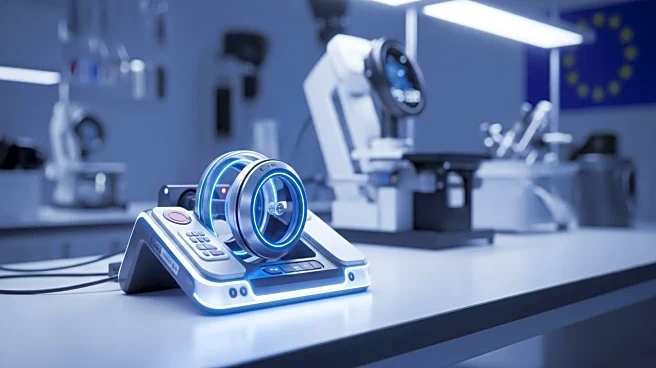What is the story about?
What's Happening?
MedTech Europe, a prominent trade group, has called on the European Commission to implement regulatory changes to provide relief to the medical device and diagnostic industries. The group, in collaboration with 35 national associations, has requested three specific changes to be made by the end of 2025 or early 2026. These include delaying device re-certification to prevent bottlenecks and establishing a governance structure for notified bodies. The call for action follows widespread dissatisfaction with current EU regulations, which stakeholders have criticized as overly complex and detrimental to patients and healthcare providers.
Why It's Important?
The proposed regulatory changes are crucial for ensuring the continued availability of medical devices in the European market. Delays in re-certification could lead to significant disruptions, potentially affecting patient care and the operational stability of device manufacturers. By advocating for these changes, MedTech Europe aims to create a more efficient and innovation-friendly regulatory environment. This could enhance the competitiveness of the European medical device industry on a global scale and ensure that patients have timely access to essential medical technologies.
What's Next?
The European Commission is expected to consider the feedback from MedTech Europe and other stakeholders as it plans reforms to the Medical Device Regulation (MDR) and In Vitro Diagnostic Regulation (IVDR). The commission may initiate pilot programs for regulatory pathways specific to orphan, pediatric, and breakthrough devices. These efforts will likely involve extensive consultations with industry representatives and healthcare professionals to ensure that the reforms address the most pressing challenges faced by the sector.
Beyond the Headlines
The push for regulatory reform highlights the ongoing tension between ensuring patient safety and fostering innovation within the medical device industry. Balancing these priorities will require careful consideration of the regulatory framework's impact on both manufacturers and healthcare providers. The outcome of these reforms could set a precedent for how other regions approach medical device regulation, potentially influencing global standards and practices.















